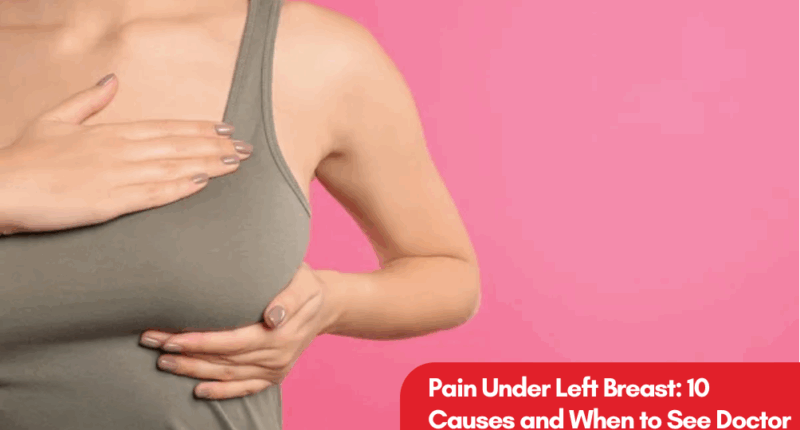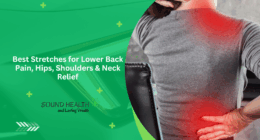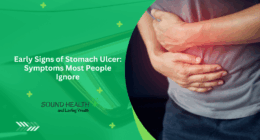- Pain under the left breast is not always heart-related but requires attention.
- Multiple causes exist, including muscle injury, digestive issues, and heart conditions.
- Differentiating breast pain from heart pain depends on quality, location, and associated symptoms.
- Prompt medical consultation is recommended when pain is severe, persistent, or accompanied by warning signs.
- Early intervention can prevent complications from conditions like heart attacks or pulmonary embolism.
Pain under the left breast can be alarming, as it sometimes hints at serious health issues. However, it does not always indicate a critical condition; there are several possible causes ranging from benign muscle soreness to life-threatening heart problems. Recognizing the nature and cause of this pain is crucial for timely and appropriate care. Samantha Nazareth, MD, a trusted WH advisor, highlights common causes such as muscle soreness, acid reflux, costochondritis, Tietze syndrome, pleurisy, hiatal hernia, pericarditis, pulmonary embolism, angina, and heart attack. Understanding these conditions, their symptoms, and when to seek medical help can make all the difference.

What Causes Pain Under Your Left Breast?
Pain in this specific area can originate from various sources, including the chest wall, lungs, gastrointestinal tract, or heart. Samantha Nazareth, MD, points out key causes:
Muscle Soreness: Overuse or strain of chest muscles due to heavy lifting, exercise, or injury.
Acid Reflux: When stomach acid irritates the esophagus, causing a burning sensation near the left breast.
Costochondritis: Inflammation of the cartilage connecting ribs to the breastbone resulting in sharp, localized pain.
Tietze Syndrome: Similar to costochondritis but with visible swelling, making the chest tender.
Pleurisy: Inflammation of the lung lining, causing sharp pain worsened by breathing.
Hiatal Hernia: When part of the stomach pushes upward through the diaphragm, causing discomfort.
Pericarditis: Inflammation of the heart’s outer sac leading to chest pain.
Pulmonary Embolism: A blood clot in the lungs causing sudden, severe chest pain and shortness of breath.
Angina: Reduced blood flow to heart muscles causing chest tightness or pressure.
Heart Attack: Sudden blockage of blood supply causing intense chest pain, often spreading to other areas.
Each cause differs in severity and symptom presentation, which makes careful observation and medical evaluation essential.
How Do You Know If It’s Breast Pain or Heart Pain?
A common question is differentiating pain under the left breast originating from breast tissue versus heart-related issues. Breast pain is typically localized, sometimes related to hormone changes, injury, or breast infections. It often feels like a dull ache, tenderness, or sharp stabbing in a precise spot. Heart pain — or angina and heart attack symptoms — is usually described as pressure, squeezing, or fullness and may radiate to the jaw, arm, or back.
Signs suggestive of heart-related pain include:
Pain lasting more than a few minutes or recurring frequently
Accompanying symptoms like sweating, nausea, dizziness, or shortness of breath
Pain triggered by physical exertion or stress, relieved by rest or medication
Understanding these distinctions helps prevent delays in seeking life-saving care.
When To See A Doctor
It is vital to act promptly if you experience:
Severe or persistent pain under your left breast
Any accompanying chest pain symptoms that resemble heart problems
Breathing difficulties or sudden weakness
Signs of swelling, redness, or intense tenderness over the chest
Pain linked with fever or unexplained weight loss
Medical evaluation may involve physical examination, imaging tests, blood work, or heart monitoring to establish a diagnosis.
Also Read | Prevent Knee Buckling After 50 with These Expert Tips










